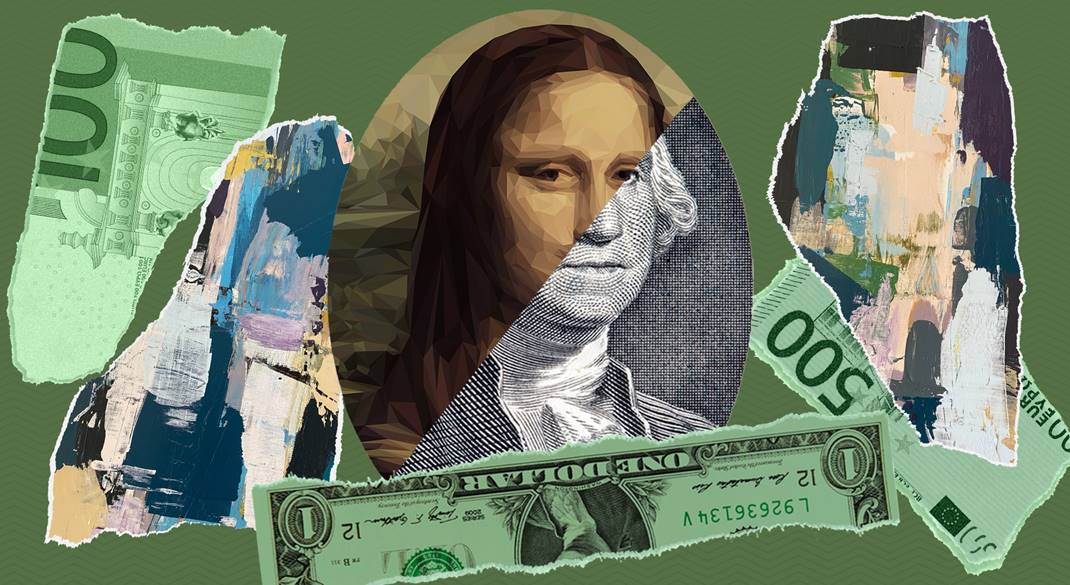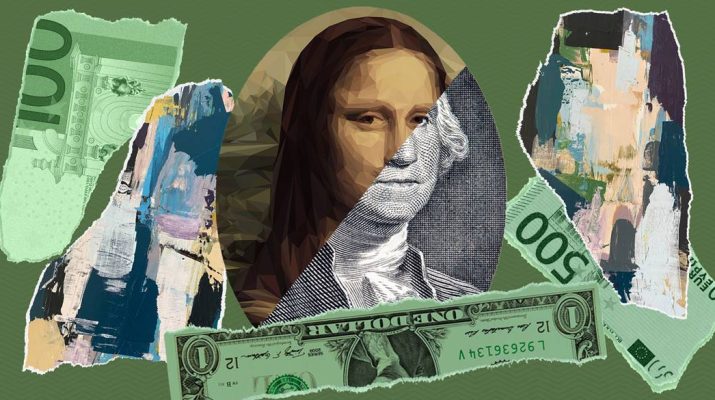Having achieved over US$65 billion in global sales in 2021, the arts and antiquities industry is an attractive market for money laundering activity, according to a Financial Action Task Force (FATF) report

With a noticeable 29% growth in sales from the year prior, criminals and the corrupt recognize the potential for illicit activity within the industry, which conveniently goes to great lengths to protect the privacy of its high-end buyers and sellers.
Valuable artworks, FATF explained, not only command high prices but also appreciate over time. Take into consideration that it is possible to buy and sell them privately, as well as how small pieces like antique gold coins can be transported across borders with ease, and suddenly you have a highly versatile means of laundering your ill-gotten gains.
Indeed, the highly-subjective nature of an art piece’s true value allows criminals to purchase an item with their illicit proceeds, and then hold it for several years before finally selling it for a “clean” profit.
While admittedly a slow method of layering in the money laundering process, it has nonetheless been noted by the U.S. Department of the Treasury to be an effective one.
Sam Hardy, a cultural property criminologist at Rey Juan Carlos University and the Norwegian Institute of Cultural Heritage Research, noted that even when authorities prosecute cases of arts and antiquities involved in criminal activity, the punishment rarely fits the crime.
“Even if they plead guilty or stand trial and are convicted, they’ll probably escape with a fine,” he told OCCRP on Monday.
One explanation for this is that money laundering is almost always linked to a prior criminal act. Connecting all the dots can be particularly challenging for investigators, who sometimes must simply settle for a lesser charge.
What’s most important to understand, FATF said, is that money laundering is but the final step in the criminal chain. The funds themselves were originally generated from crimes such as drug trafficking and corruption that harm society and drain its financial resources.
And fortunately for criminals, the art and antiquities industry is renowned for the privacy it guarantees its buyers and sellers.
Private dealers, third-party intermediaries, and auction houses are but a few purveyors that prospective buyers may approach to make purchases with their ill-gotten gains. All without risking their real name appearing on any sort of bill of sale or official documentation.
In the U.S., for instance, art dealers are a popular enabler for money launderers, in that the transactions they facilitate are not subject to high degrees of scrutiny from the country’s financial authorities.
Intermediaries, meanwhile, are noted by FATF to be relatively common in the buying and selling process, a fact that helps to obscure the identity of the criminal actor pulling the strings behind the veil.
While the report highlights that the majority of participants in the art world do not have any connection to illicit activity, they also lack any incentive to properly scrutinize prospective buyers and their source of funds.
And if no controversy ever arises from the sale, then there is little reason to; the artist gains a reputation from having sold an original piece or the private seller makes a tidy profit off their investment before all parties go their separate ways.
Auction houses, likewise, have a financial incentive to list items at a higher price, given the commission they take off of each sale. This incentive, FATF argues, could “reduce the amount of due diligence” they conduct in ensuring that all transactions are made with total transparency.
Ultimately, privacy guaranteed is what “protects the reputations and businesses of participants in those supply chains,” Hardy said.
Authorities, meanwhile, are largely outmatched in their fight against criminal activity within the art world.
The two fundamental problems for policing, Hardy explained, are a lack of specialized agents who can investigate such cases and non-specialized agents who can immediately recognize an item of interest, much like a narcotics officer can immediately recognize a stash of drugs.
And thanks to its transportable size, high-value art can be easily spirited across borders, away from those who might recognize its true origins.
“Laws vary widely in source, transit, and market countries,” Hardy said. “For instance, archaeological goods may be illegally extracted from one country, then converted into legal goods through possession in another country.”
Border agents, meanwhile, would be considered ill-equipped to give an accurate appraisal of a work of art; through no fault of their own, they simply lack the expertise and knowledge of the industry’s rich history.
And once the item has left its country of origin is when the real nightmare begins for investigators.
For various reasons, Hardy said, a law enforcement agency in one country may not be willing to cooperate with another country; be it for human rights concerns or other political reasons.
Add in the fact that not all countries even possess specialized units trained to investigate money laundering in the art world, and international investigations can be sunk before they even truly start.
It is for this reason that FATF recommends that as many countries as possible compile databases on their respective countries’ artworks and registries on any sales therein.
The Italian Carabinieri Unit for the Protection of Cultural Heritage and Interpol’s Stolen Works of Art database are but two examples that could be referenced.
And by making them readily available to partner law enforcement agencies when requested, it suddenly becomes far easier to cross-reference any transactions flagged for potentially stolen items or money laundering activity.
As for private sellers and art dealers, FATF recommends a more thorough due diligence process for recording transactions.
More intensive regulation and supervision, especially for sales involving lawyers and third-party intermediaries, will hinder criminals’ ability to abuse the industry for money laundering purposes, FATF said.
Napomena o autorskim pravima: Dozvoljeno preuzimanje sadržaja isključivo uz navođenje linka prema stranici našeg portala sa koje je sadržaj preuzet. Stavovi izraženi u ovom tekstu autorovi su i ne odražavaju nužno uredničku politiku The Balkantimes Press.
Copyright Notice: It is allowed to download the content only by providing a link to the page of our portal from which the content was downloaded. The views expressed in this text are those of the authors and do not necessarily reflect the editorial policies of The Balkantimes Press.

